By NATSUKI OKAMURA/ Staff Writer
September 28, 2024 at 15:58 JST
 Shigeru Ishiba, the newly elected president of the Liberal Democratic Party, takes his seat in the party leader’s office on Sept. 27. (Takeshi Komiya)
Shigeru Ishiba, the newly elected president of the Liberal Democratic Party, takes his seat in the party leader’s office on Sept. 27. (Takeshi Komiya)
The surprise election of Shigeru Ishiba as the new head of the Liberal Democratic Party could mark a significant shift from the “Abe style” of politics that had held sway since the party’s return to power in 2012.
Public support will be crucial for Ishiba, who had kept his distance from the LDP mainstream and still has a weak internal party base.
He pledged to lead the party reeling from a slush fund scandal toward “politics from the public’s perspective.”
“We need to return to an LDP that allows for open and lively debate, an LDP that is fair, just and humble. We were able to take back power (in 2012) by coming together with unified hearts,” Ishiba, 67, told lawmakers as he addressed them after being elected as the party’s new leader.
“I want the party to return to that time again,” he said.
The last significant post Ishiba held was state minister for regional revitalization between 2014 and 2016. Since then, he had not held a senior party or Cabinet position.
But Ishiba harbored deep frustration over the party’s silence on scandals surrounding the late Prime Minister Shinzo Abe.
These include the sale of state-owned land at an eye-popping discount to private school operator Moritomo Gakuen, which was found to have links to Abe’s wife.
Another scandal involved accusations Abe mixed private and public matters in a taxpayer-funded sakura cherry blossom viewing party, which had potential legal ramifications.
Ishiba also feels a strong sense of duty to restore public trust in the party, which has been badly damaged by the recent political fund scandal that led to the dissolution of many LDP factions.
FOCUS ON NEW ADMINISTRATION
The first major test of Ishiba’s leadership will be the formation of his new administration.
In the runoff, Ishiba defeated staunch conservative Sanae Takaichi, the economic security minister who had positioned herself as Abe’s natural successor in pursuing his political credo.
But in the first round, Ishiba not only lagged behind Takaichi in votes from lawmakers, where he had been seen as facing an uphill battle, but also in local votes from rank-and-file LDP members and supporters, where he had been expected to perform much better.
A senior Takaichi campaign staffer said: “She (Takaichi) dominated in urban areas. He (Ishiba) will not be able to ignore this.”
Many of Takaichi’s supporters were members of the Abe faction, who were mired in the political fund scandal.
Ishiba has indicated that the LDP under his leadership would not endorse candidates tarnished by the scandal in the next election, a stance that has raised cautionary flags within the party.
Keeping the party united will be one of his first challenges.
Another focus is on when Ishiba will dissolve the Lower House for a snap election as it has less than a year left in its four-year term.
Opposition parties once criticized the Abe administration for calling snap elections while ignoring their demands to convene an extraordinary Diet session.
In a BS Fuji TV program on Sept. 25, Ishiba hinted that he intends to call a snap election, but only after a thorough Diet debate with the opposition camp on pressing issues.
“We must provide voters, who have sovereign rights, with enough information to make an informed decision,” he said.
“But as a new administration, it’s only natural to hold an election to seek the public’s confidence as early as possible,” he added.
There is speculation in political circles that the Lower House election could be held on Oct. 27 or Nov. 10.
SCENARIOS FOR SNAP ELECTION
Ishiba initially envisioned dissolving the Lower House after the Budget Committee in the extraordinary Diet session on Oct. 1.
However, he is now reportedly considering holding a party leaders’ debate instead.
Ishiba also faces a busy political and diplomatic schedule in the coming weeks.
He is expected to represent Japan on the sidelines of the Association of Southeast Asian Nations (ASEAN) summit in Laos in early October, followed by the Asia-Pacific Economic Cooperation (APEC) summit and the Group of 20 summit in South America in mid-November.
The outcome of the U.S. presidential election in November could affect Ishiba’s foreign policies.
If Donald Trump, with his “America First” approach, returns to power, Ishiba will likely face tough decisions in navigating Japan-U.S. relations.
Ishiba has had many opportunities to engage with China and is regarded favorably by Beijing.
However, China, miffed by Ishiba’s visit to Taiwan in August, urged him to exercise caution. How Ishiba handles relations with Chinese President Xi Jinping will be closely watched.




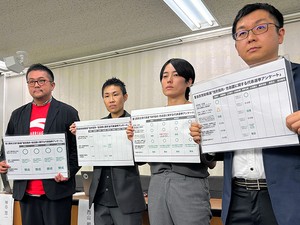
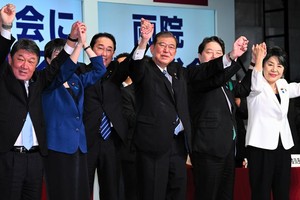
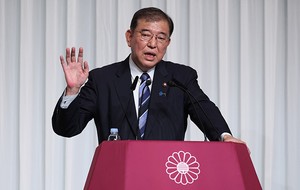
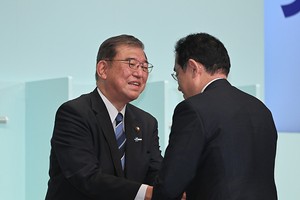
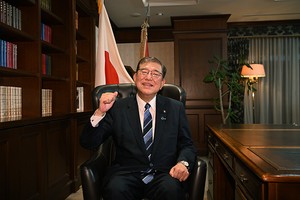


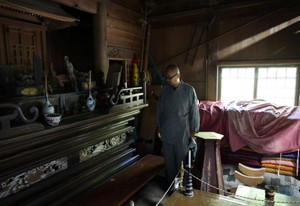
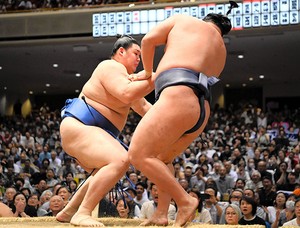







Stories about memories of cherry blossoms solicited from readers
Cooking experts, chefs and others involved in the field of food introduce their special recipes intertwined with their paths in life.
A series based on diplomatic documents declassified by Japan’s Foreign Ministry
A series on the death of a Japanese woman that sparked a debate about criminal justice policy in the United States
A series about Japanese-Americans and their memories of World War II
Here is a collection of first-hand accounts by “hibakusha” atomic bomb survivors.